The process of neutering refers to the surgical removal of a dog’s reproductive organs. The procedure can occur at a particular time when the dog’s physiological and hormonal changes indicate behavioral or physical tendencies. Signs your dog needs to be neutered include behaviors like roaming, territory marking, and aggression. The dog owner should decide to get the dog neutered in a timely manner. Neutering can benefit the dog’s health and well-being and reduce hassle for the owner. It has various physiological and behavioral benefits, such as reducing the risk of certain types of cancer and minimizing misfit behaviors like roaming and territory marking.
Neutering is a process done by a professional veterinarian. Recognizing the signs and symptoms that indicate the need for the dog to be neutered is crucial. If one does not deal with these behavioral tendencies at an early stage, it can lead to various problems, like aggression, roaming, conflict with other dogs, damage to property or others, damage to oneself, health problems, testicular issues, hormonal imbalance, and much more. Addressing these issues can prevent serious health complications and improve the quality of life for your pet.
By understanding and identifying these signs, dog owners can make informed decisions about neutering, ensuring their pets lead healthier, happier lives. Consulting with a veterinarian to determine the best course of action is always recommended, as each dog’s needs may vary. Neutering is a responsible and beneficial decision that enhances the well-being of dogs and contributes positively to the community by preventing overpopulation and related issues.
Behavioral signs that your dog needs to be neutered
Your dog’s behavior can change with time and may indicate the signs of being neutered. Noticing and considering such behavior is very important for you to recognize the need for your dog to be neutered. Here are the significant behavioral signs that display the need to get your dog neutered:
1) Humping
Testosterone is a hormone in male dogs that increases its release with time and age if the dog. It is the hormone responsible for sex drive and sexual urges. With the increase in testosterone in intact male dogs, one of the most common behavioral tendencies observed in them is the act of humping.
Your dog may begin humping other dogs in the park or your locality, which can create discomfort or conflict among the animals. The dog may also start humping the legs of any visitors or members of the family, which can further cause annoyance or embarrassment. Often, the dog may also hump inanimate objects.
2) Mounting
Mounting is also an act similar to that of humping. Mounting can indicate dominance or sexual desire in the dog and can manifest in such behavior. This behavior can occur in any social setting, interactions with other dogs, or proximity to other humans.
The dogs may mount over the other dog, often perceived as anger, aggression, or inappropriate behavior. As an act, mounting is done in conjunction with humping or can also happen frequently. In such situations, neutering can help control or reduce the release of testosterone, which can further limit or significantly decrease sexual urges in an intact male dog.
3) Roaming
When the sexual urges or the sexual drive increases in intact male dogs, it is a common tendency to roam outside in heat in search of a female dog or a mate. Dogs can smell the scent of a female dog and, hence, may run out or step outside of the house to follow or search for the smell. In such cases, the dog is in danger of being alone and risks getting lost, injured, or involved in an accident or contracting various external infections or allergies.
Roaming as a behavior can be highly dangerous for the dog. One can supervise or control this behavior by installing larger walls, sturdy fences, or protective covering around the house that prevents their entry outside. Neutering can significantly reduce roaming behaviors and help in controlling the sexual drive to go out on an impulse.
4) Territorial marking
Male dogs that haven’t been neutered are more likely to use urine to mark their inside and outside areas. This behavior happens due to the need to show females who are dominant and draw them. For example, your dog could start leaving marks on walls, furniture, or even the things that other people bring you.
To stop dogs from marking their territory, start a regular training plan that teaches them good bathroom habits and discourages this behavior. When a dog is neutered, it will mark its territory much less often and with more energy. This makes it easier to keep the house clean and odor-free.
5) Increased aggression
Having sexual urges and drive due to growth, physiological changes, and hormonal changes can be different reasons for feeling overwhelmed with sexual desire. When left unsatiated or dissatisfied, it is common for the dog to show aggressive behavior or anger. This anger can manifest in different forms of social settings and interactions.
You can see this aggressive behavior towards another family member, you, or any other dog in the locality. Such behavior poses harm to you, your dog, and other dogs as well. Neutering reduces testosterone levels, which further helps reduce aggression in dogs. This helps in relatively peaceful and non-confrontational social interactions.
6) Mounting objects
Mounting objects can be seen as highly inconvenient, strange, and inappropriate. Dogs, due to sexual urges and drive, can also begin mounting or humping inanimate objects. These objects can include pillows, toys, and even furniture. This behavior can easily cause injuries and may lead to aggressive behavior in dogs because of dissatisfaction.
You can try to keep your dog mentally or physically stimulated enough to keep them busy and diverted. Neutering can help reduce the sexual urge of the dog significantly and reduce the frequency of inappropriate behavior by a great deal.
Signs related to mating
Some signs of physiological and behavioral tendencies may easily indicate the need for neutering. When sexual drive or sexual urges increase, it is the natural tendency of the dog to look for a mate. To fulfill this urge, they may go out of the way, potentially leading to risky behavior.
Here are some of the signs:
1) Escaping
For breeding, dogs can actively try to find a mate. In the heat, dogs can smell the scent of the female dog from a significant distance. They can escape from the house or run outdoors searching for the female to achieve this. This can lead to many risky behaviors or dangerous situations.
Dogs can climb or jump over walls, run through unbolted doors or passages, or find escapes to go outside. They may get lost, injured, in an accident, or face many dangerous consequences. Escaping as a tendency is driven by breeding instincts. The relentless urge of an intact male dog to search for the female dog can pose various risks, potential exposure to harmful substances, and various undermined acts of aggression or conflict with other animals.
To prevent your dog from escaping, it is essential to supervise your dog’s activity throughout the day. One step you can take is to install higher walls, sturdy fences, and bolted windows throughout the house. Baby-proofing the house and installing baby or indoor gates can also help prevent them from running outside.
Another way to do this is by installing cameras that help you supervise your dog’s whereabouts throughout the day. You can also get leashes or harnesses to be in charge of your dog when you are outside or involved in an outdoor activity.
Neutering can significantly reduce this sexual urge. It lessens the release and effect of testosterone in the body, therefore hugely reducing sexual urges and decreasing such impulsive behavior.
This reduction in the hormone can diminish the urge to look for a mate and reduce one’s breeding instincts. It makes your dog more comfortable at home, calmer, and more peaceful inside and during social interactions.
2) Attracting unwanted attention
When female dogs get into heat, male dogs can detect the scent from a significant distance. The dogs in the neighborhood will try to mate with them, which can be annoying and hectic for pet owners. The smell of a female in heat can travel long distances and sometimes bring a lot of male dogs to your property.
This can cause noise, property damage, and fights between male dogs stuck in a competitive impulse or conflicting behavior. Also, having male dogs around all the time can be stressful for females and raise the risk of having unexpected litter, which adds to the problem of overpopulation of pets.
If you own a female dog, caring for it, especially in heat, requires planning and alertness. It must stay inside during the heat cycle to keep the female from being too exposed to pestering partners or maters. When it needs to go outside, ensure you have a close watch and on a leash so it doesn’t accidentally meet any male dogs. Using diapers for dogs can also help control the smell and make the male dogs less interested in the female dog.
Neutering is a good way to deal with these problems. When a female dog is neutered, her heat cycles stop, which takes away the main reason why it wants male attention. On the other hand, when you neuter a male dog, it makes him less interested in finding females, which makes it less likely that they will come to your home.
Neutering helps make the home safer and more peaceful for the dog and the owner by treating the hormonal causes of these behaviors. This step not only improves your pet’s life but also helps solve the more significant problem of overpopulation.
Physical signs that indicate that a dog needs to be neutered
Besides a dog’s hormonal urges and behavioral tendencies, it is essential to recognize and consider various physical problems if the dog is not neutered. Neutering the dog can help reduce physiological issues or physical challenges that are potentially risky or threatening for a dog and may cause chronic or dangerous health issues. Here are the significant physical signs that you must keep in consideration:
1) Testicular issues
Testicular issues in dogs are common and can develop with age and time. One common issue is the presence of undescended testicles. Also known as cryptorchidism, undescended testicles are where one or both testicles do not descend or move into the scrotum as they should. Another major risky problem is enlarged testicles. Enlarged testicles in dogs can indicate the development of cancerous cells, the growth of a tumor, or can pose an impending infection or hormonal imbalance.
Having your dog neutered can help reduce this significantly by completely removing the risk of testicular cancer and reducing testosterone levels so that the hormonal balance is kept at pace and in control. This can also help decrease any potential risk for testicular issues in the dog in the long run by controlling and balancing the hormones early.
2) Prostate problems
The prostate is a gland located near the bladder in dogs. Prostate problems in unneutered dogs are very common and can cause a lot of pain, discomfort, and difficulty. The prostate is responsible for urination in the dog, and any persistent issue related to the process also obstructs the process of urination.
One of the significant issues, called benign prostatic hyperplasia (BPH), includes the enlargement or abnormal growth of the prostate, which can cause difficulty in the process of urination. Another common issue can be the inflammation of the prostate, which is called prostatitis.
Besides these, prostate cancer is also an occurrence in some cases. Neutering can be a very straightforward procedure that can help reduce the levels of testosterone in the dog. This reduction of the hormone, in turn, naturally reduces the size of the prostate in dogs and also decreases the potential chance for these problems to occur.
3) Hernias
Another health problem that can happen more often in male dogs that have not been neutered is hernias. Hernias happen when a body part pushes through a weak spot within the muscle or tissue. Inguinal hernias are ruptures and the most common kind in dogs. They usually happen in the lower belly area.
This can cause a painful bulge that, if not treated, can become a major problem. Hernias can be painful and uncomfortable, and in the worst cases, they can be life-threatening if internal organs get stuck in the process. By neutering, your dog may be less likely to get these hernias.
Neutering can help improve and strengthen the abdomen’s wall, making it less likely that a hernia will happen. By getting your dog neutered, you are preventing painful and possibly dangerous hernias from developing.
Behavioral changes after neutering (potential benefits)
The change in your dog’s behavior after the process of neutering is done is very evident and can be seen as a great deal of improvement. Mainly, it can be seen as a more calm and relaxed behavior, overall well-being, and concrete signs that the sexual drives have reduced and hormonal balance has been created. The two major changes in behavior that you may notice after getting your dog neutered can be described as the following:
1) Less marking: reduced territorial behavior
One of the most common signs you can notice when your dog is neutered is the reduction of territorial behavior. Territorial marking is a common sign or a behavioral tendency in dogs in which they mark a certain area, object, or place to mark it as their own. The marking is usually done through urination. The reason or motivation behind this kind of behavior is to exert or display dominance or sexual urges or desires to any potential mate’s presence nearby.
This behavior is done due to the presence of testosterone and an increase in its release. Although the dogs do it to assert dominance or communicate with other dogs in the area, it can be annoying, hectic, or frustrating for dog owners to find their belongings or parts of their homes marked with urine.
By neutering, you can see a significant reduction in territorial marking behavior in dogs. The reduction in testosterone levels also lessens the urge to exhibit dominance or mark different areas. It is essential to know that some dogs might still indulge in marking behavior even after being neutered out of habit or conditioning.
You can break this conditioning cycle with practice and training over time. It is easy to remove the marking behavior through positive behavior, and owners can train their dogs to urinate in the appropriate places. This process allows dog owners to enjoy an odor-free and clean home and surroundings.
2) Calmer demeanor: Behavioral improvement
Before your dog is neutered, it is very common for them to display aggressive and inappropriate behavior. Many behavioral tendencies in dogs, like humping, mounting, roaming, and territorial marking, are the results of sexual urges or desires. The increase in the levels of testosterone can also increase the impulsiveness and aggression in a dog, which can further lead to inappropriate behavior and potential risks during social interactions. Such behavior can make outdoor activities or social interactions difficult to handle. Some dogs also engage in behavior like roaming or excessive marking, which may strain the relationship between the dog and its owner.
After neutering, it can be evident that the dog is much calmer and peaceful. The reduction in testosterone levels can greatly reduce aggression in a dog. This also involves the reduction or complete eradication of any inappropriate, uncomfortable, or conflicting behavior toward other dogs, which can encourage a more enjoyable and calmer setting for outdoor activities. The owner can feel a better form of companionship with the dog. Neutering can also help your dog feel more comfortable being homebound, leading to significantly calmer behavior.
Conclusion
Overall, getting your dog neutered is significant. A dog’s health and well-being need to know the signs that they need to be neutered. Behaviors like humping, mounting, roaming, displaying or marking territory, getting more aggressive, and mounting objects can be signs that the dog needs to be neutered.
Physical problems, on the other hand, like issues with the testicles, the prostate, and the abdomen, show that this treatment is good for your dog’s health and well-being. When a dog is neutered, it may change its behavior for the better, like less marking behavior and displaying a calmer demeanor.
Not only does neutering improve your dog’s health and behavior, but it also makes your home safer and more peaceful for you and your pet. If you notice any of the symptoms listed in this guide, you should talk to a vet to figure out what to do next or what option might be the best for your dog.
Neutering your dog is a sensible and helpful choice to improve its quality of life and help stop overpopulation and related problems. By neutering your dog and putting their health and well-being first, you are helping them and the community.
 DogExpress
DogExpress

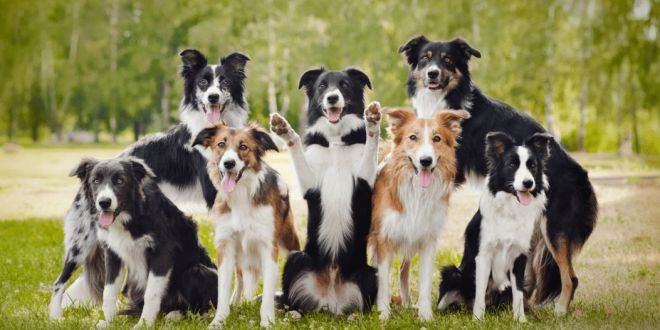
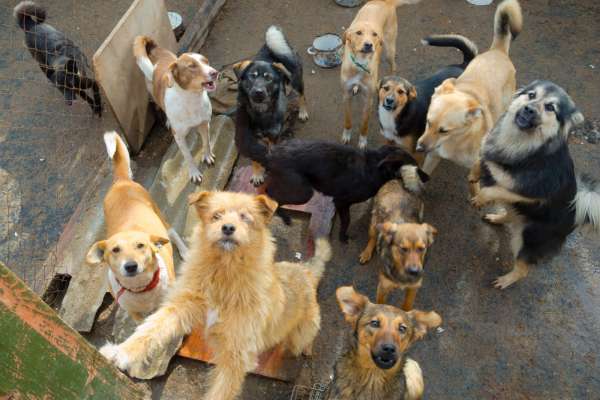
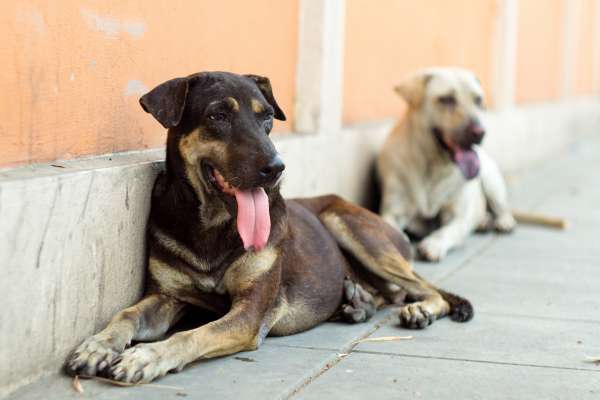
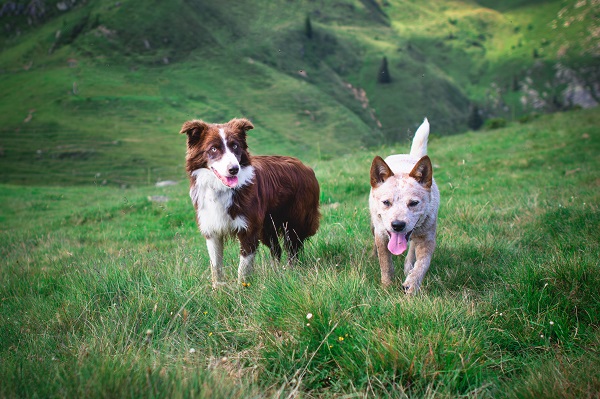
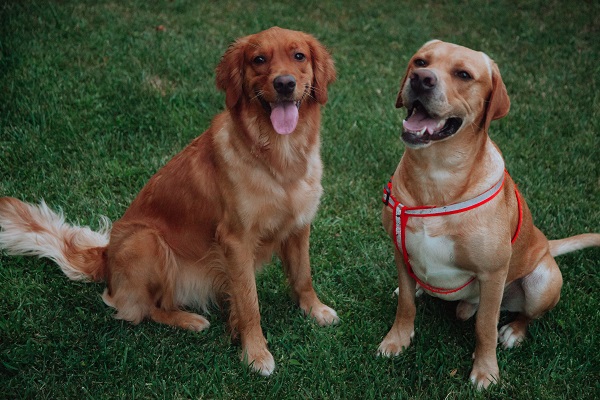



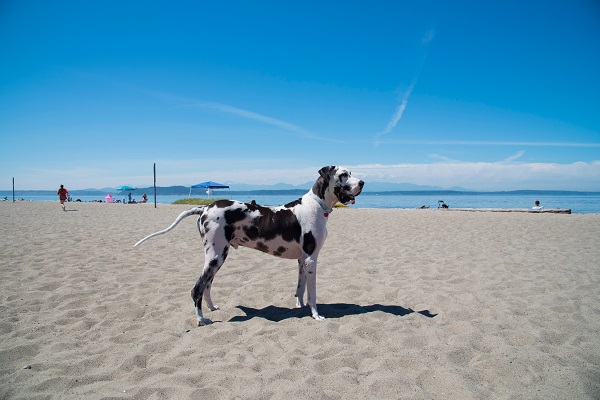
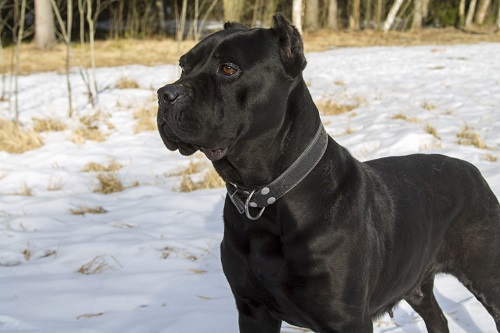













 in Chandigarh, India.
in Chandigarh, India. 

